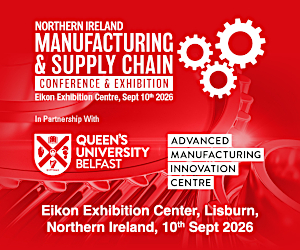£100 million R&D levelling up funding awarded to accelerate UK innovation

The £100 million Innovation Accelerators programme is accelerating the growth of three high-potential innovation clusters in Glasgow, Greater Manchester and the West Midlands. Twenty-six research and development (R&D) projects will attract private R&D investment, create new jobs, boost regional economic growth, and develop the technologies of tomorrow.
Innovation Accelerators are a pilot approach to supporting three city regions to become major, globally competitive centres for research and innovation.
The programme is pioneering a new model of R&D decision-making that empowers local leaders to harness innovation in support of regional economic growth.
Partnerships of local government, business and R&D institutions in the three city regions have led on selecting the 26 projects, working closely with Innovate UK.
Three city regions
Three city regions in Glasgow, Greater Manchester and West Midlands were chosen to pilot this programme in recognition of their R&D strengths, robust private and public innovation governance and strong local leadership.
The £100 million funding is being shared across those three regions and has been allocated using a pioneering ‘locally-led’ approach.
The projects will address local, national and global societal and environmental challenges. They range from developing health innovations to quantum technologies, and green technologies to secure a safe and resilient transition to net zero.
Boosting local economies
Glasgow will boost extensive venture capital investment in key growth innovation sectors including advanced manufacturing, space, and precision medicine.
Greater Manchester will lead the way in sustainable advanced materials and manufacturing, digital and tech, health innovation, and technology to become carbon neutral by 2038.
West Midlands will accelerate R&D and innovation strengths to enable greener technologies and improved personalised and digital healthcare for all regions, while boosting supply chains and creating new local jobs.
Local business leaders are central to the Innovation Accelerator partnerships. Industry are partners in many projects, and each city region’s portfolio will leverage private investment.
Innovate UK leadership
Innovate UK has led UK Research and Innovation’s (UKRI) support in delivery of the programme, working in collaboration with the three local partnerships.
The whole of government is backing the Innovation Accelerators, with access to dedicated support from:
- the Department of Science, Innovation and Technology
- UKRI
- Department for Levelling Up, Housing and Communities.
This will help the partnerships to attract private R&D investment and overcome barriers to cluster growth.
As a pilot programme, the Innovation Accelerators will also deepen our understanding of the right conditions and interventions to grow successful innovation clusters throughout the country and to cement the UK’s position as a science and technology superpower.
Creating opportunities
Minister of State for Science Research and Innovation at the Department for Science, Innovation and Technology George Freeman said: “Record investment in our UK science, technology and innovation sectors are creating new career opportunities in the campuses, clusters and companies of tomorrow. R&D is key to levelling-up by growing the R&D Innovation Economy outside the Greater South East.
“That’s why UKRI is putting clusters at the heart of its strategy and why our £100 million Innovation Accelerator Program provides £33 milion each to 3 emerging clusters to attract industrial co-investment and become major, globally competitive centres.”
Boosting local innovation
Indro Mukerjee, Chief Executive at Innovate UK, said: “As the UK’s innovation agency, Innovate UK is dedicated to building strong regional partnerships to boost local innovation and commercialisation.
“Our Innovation Accelerators will attract further private sector investment in city regions, driving economic and societal growth and benefiting local communities. Together, we can unleash the full innovation potential of every community in the UK.”
Projects
26 locally led, high impact projects selected across the three regions, with each region receiving an equal share of the funding allocation:
Glasgow City Region
Projects:
- Fusing a future from Glasgow’s proud heritage: schedule guaranteed high-integrity structures for a secure, safe and resilient transition to net zero’, led by University of Strathclyde. (Sector: net zero)
- Risk stratification tool for colorectal polyp surveillance, led by University of Glasgow. (Sector: health)
- ReMake Glasgow’, led by University of Strathclyde. (Sector: energy)
- FinTech, Centre of Innovation in Financial Regulation, led by Fintech Scotland. (Sector: digital)
- Museums in the metaverse, led by University of Glasgow. (Sector: creative)
- Pilot Accelerator for National Institute for Quantum Integration’, led by University of Glasgow. (Sector: electronics)
- Modular chemical robot farms for chemical manufacturing, led by Chemify Limited. (Sector: manufacturing)
- Data-driven design and manufacturing colab (D3M_Colab), led by University of Strathclyde. (Sector: digital)
- Innovation Accelerator in neutral atom quantum optimisation, led by M-Squared Lasers Limited. (Sector: emerging technology)
- Next generation remote-sensing technologies, led by Thales UK Limited. (Sector: electronics)
- Stratellite space and photonics Glasgow Impact Accelerator’, led by University of Strathclyde. (Sector: space)
Greater Manchester
Projects:
- Future Homes, led by University of Salford. (Sector: net zero)
- Greater Manchester Electro-chemical Hydrogen Cluster, led by Manchester Metropolitan University. (Sector: net zero)
- Manchester Turing Innovation Hub (MTIH), led by The University of Manchester. (Sector: digital)
- The Development and Validation of Technology for Time Critical Genomic Testing (DEVOTE) Programme, led by The University of Manchester (Sector: health)
- Energy Accelerator for Non-Domestic Buildings, led by The Growth Company (Sector: net zero)
- Centre for Digital Innovation (CDI), led by Manchester Metropolitan University. (Sector: net zero)
- Pilots for the Sustainable Materials Translational Research Centre (p- SMTRC), led by Rochdale Development Agency. (Sector: advanced materials)
- AR EdTech For Hydrogen Skills , led by Blair Project LTD. (Sector: net zero)
- GM Advanced Diagnostics Accelerator, a partnership between Health Innovation Manchester, Manchester University NHS Foundation Trust, and University of Manchester (Sector: health)
- MediaCity Immersive Technologies Innovation Hub, led by The Landing at Media City UK Limited. (Sector: creative)
West Midlands
Projects:
- West Midlands HealthTech/MedTech ‘6D’ Innovation Accelerator, led by University of Birmingham. (Sector: health technology)
- Clean futures, led by Connected Places Catapult. (Sector: clean technology)
- West Midlands Innovation Programme, led by West Midlands Combined Authority. (Sector: health and clean technology)
- The Biochar Clean Tech Accelerator – Empowering Regional Clusters, led by Aston University. (Sector: clean technology)
- Digital innovation transformative change, led by Connected Places Catapult. (Sector: health and clean technology)

























